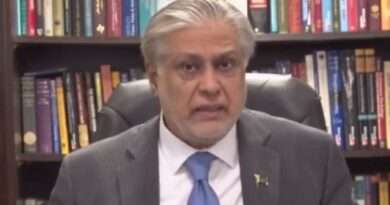Azerbaijan to Invest $3 Billion in Pakistan: A Boost to Economic Growth
|
Getting your Trinity Audio player ready...
|
In a significant development for Pakistan’s economy, Azerbaijan has approved a massive investment plan of $2 billion to $3 billion across various sectors. This capital injection aims to strengthen bilateral ties and bolster Pakistan’s economic framework. With the signing of several Memoranda of Understanding (MoUs) on the horizon, this initiative reflects growing international confidence in Pakistan’s economic potential.
Azerbaijan’s Commitment to Investment
$3 Billion Investment Plan
Azerbaijan’s cabinet has approved substantial investments in Pakistan. Prime Minister Shehbaz Sharif, during a recent cabinet meeting, disclosed that this financial injection would focus on strategic sectors. These include energy, infrastructure, and technology, laying the foundation for sustainable economic growth.
The MoUs, once finalized, will bring about structural reforms in these sectors, ensuring long-term economic stability and improved international collaboration.
Economic Cooperation with Saudi Arabia
Collaboration Across Key Sectors
Following PM Shehbaz Sharif’s visit to Saudi Arabia, discussions have been initiated in areas such as:
- Solar Energy: Joint ventures for clean and sustainable energy production.
- Mines and Minerals: Exploring untapped mineral resources for mutual economic benefit.
- Information Technology: Capitalizing on the growing demand for IT professionals in the Gulf region.
The premier emphasized that these initiatives would not only enhance bilateral trade but also create new employment opportunities.
Pakistan’s Role in Global IT Demand
Growing IT Workforce
Saudi Arabia and other Gulf countries are experiencing a surge in demand for skilled IT professionals. Pakistan is poised to meet this demand by focusing on:
- Training IT Talent: Developing a workforce that aligns with global standards.
- Exporting Expertise: Providing skilled professionals to international markets.
The Ministry of Information Technology has been directed to present a comprehensive strategy for nurturing talent in this sector.
Economic Stability through Policy Adjustments
Reduction in Policy Rate
A 250-basis-point reduction in Pakistan’s policy rate by the State Bank of Pakistan has brought the rate down to 15%, marking a pivotal moment for economic revitalization.
Key Impacts:
- Boosting Investments: Lower borrowing costs encourage industrial and agricultural growth.
- Reducing Debt Burden: The government’s debt reduced by Rs1.3 trillion, creating fiscal space for development initiatives.
- Job Creation: Stimulated economic activity fosters employment opportunities.
PM Sharif expressed optimism that these measures would yield long-term economic benefits.
Improving Tax Collection Mechanism
Rewarding Taxpayers
Highlighting the importance of tax compliance, the premier acknowledged taxpayers as the true patriots of the nation. He directed the Federal Board of Revenue (FBR) to ensure respectful treatment of taxpayers while taking strict action against tax evaders.
Enhanced Enforcement:
- Penalizing non-compliance with tax obligations.
- Monitoring FBR officials who aid tax evasion.
This initiative aims to strengthen the country’s revenue collection system and support economic growth.
Relief for Electricity Consumers
Winter Package Announcement
In a bid to alleviate the burden on the public, PM Sharif announced a forthcoming “winter package” for electricity consumers. This initiative seeks to:
- Lower electricity costs during peak demand seasons.
- Encourage energy conservation and efficiency.
The package reflects the government’s commitment to addressing public grievances and ensuring affordable energy access.
Strategic Focus on IMF Requirements
Meeting Financial Challenges
To meet the International Monetary Fund’s (IMF) requirements, the PM stressed the importance of enhancing tax revenue and receipts. Despite facing significant economic hurdles, he reiterated his confidence in the nation’s resilience and ability to navigate challenges.
Key Areas of Focus:
- Enhancing fiscal responsibility.
- Meeting IMF benchmarks without compromising public welfare.
- Encouraging foreign investment to stabilize the economy.
Conclusion
Azerbaijan’s investment commitment, coupled with initiatives to foster economic cooperation with Saudi Arabia, highlights Pakistan’s growing global relevance. Policy adjustments, tax reforms, and strategic collaborations aim to stabilize the economy, create jobs, and improve public welfare. As Pakistan embraces these changes, it is well on its way to overcoming economic challenges and achieving long-term prosperity.
FAQs
How is Pakistan addressing tax evasion? The FBR enhances enforcement mechanisms to penalize tax evasion and reward compliant taxpayers, strengthening the revenue collection system.
What sectors will benefit from Azerbaijan’s $3 billion investment in Pakistan? Azerbaijan’s investment will focus on energy, infrastructure, and information technology, ensuring sustainable economic growth and bilateral cooperation.
How will the policy rate reduction impact Pakistan’s economy? The 250-basis-point cut will lower borrowing costs, encourage investments, reduce the debt burden, and create employment opportunities.
Why is IT workforce development significant for Pakistan? With a growing demand for skilled IT professionals in the Gulf region, Pakistan aims to capitalize on this opportunity by training its workforce to meet international standards.
What relief measures are being planned for electricity consumers? The government plans to introduce a “winter package” to lower electricity costs during peak seasons, ensuring affordable access to energy.
ALSO READ:
https://skipper.pk/2024/11/20/vpn-ban-and-slow-internet-a-grave-threat-to-pakistans-it-industry/




